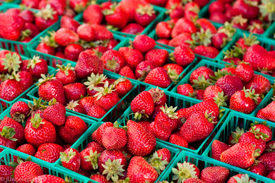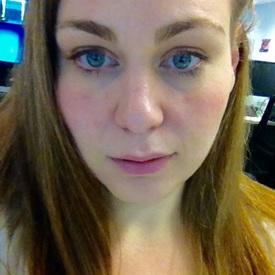Heavy breakfast vs. heavy dinner

shejuicy
Posts: 17
I recently read a study in which women who had a 700/500/200 breakfast/lunch/dinner format lost noticeably more weight (2.5x more) than those eating 200/500/700 for breakfast/lunch/dinner.
Here is the abstract: http://www.ncbi.nlm.nih.gov/pubmed/23512957
I always thought I should save my calories during the day to "reward" myself with a juicy dinner/ dessert, so this is interesting.
Any experiences?
Here is the abstract: http://www.ncbi.nlm.nih.gov/pubmed/23512957
I always thought I should save my calories during the day to "reward" myself with a juicy dinner/ dessert, so this is interesting.
Any experiences?
0
Replies
-
Having tried both, high-calorie breakfasts lead to high-calorie late night binges. I do better with nothing/very little all day.0
-
I've had no issues losing weight not eating breakfast and eating large dinners but it just comes down to what works with you.
The study is flawed for a few reason because the caloric counts were based on self reporting (eg they reported what they had eaten) rather than monitored over a short period of time (only 12 weeks), therefore they're less likely to be accurate. There are also loads of studies that show no correlation between eating breakfast and improved weight management:
Al-Hourani HM, Atoum MF. Body composition, nutrient intake and physical activity patterns in young women during Ramadan. Singapore Med J. (2007)
Sensi S, Capani F. Chronobiological aspects of weight loss in obesity: effects of different meal timing regimens. Chronobiol Int. (1987)
Nonino-Borges CB, et al. Influence of meal time on salivary circadian cortisol rhythms and weight loss in obese women. Nutrition. (2007)
Keim NL, et al. Weight loss is greater with consumption of large morning meals and fat-free mass is preserved with large evening meals in women on a controlled weight reduction regimen. J Nutr. (1997)
Sofer S, et al. Greater weight loss and hormonal changes after 6 months diet with carbohydrates eaten mostly at dinner. Obesity (Silver Spring). (2011)
Schlundt DG, et al. The role of breakfast in the treatment of obesity: a randomized clinical trial. Am J Clin Nutr. (1992)0 -
Eat at the time you prefer. I skip breakfast always and lunch sometimes.0
-
I hate large breakfasts. Most of my calories get used up right away, and I have nothing left for when I'm hungry at night. I always skip breakfast and sometimes lunch, and just eat after 3 PM.0
-
I don't like breakfast too much myself I think as long as you eat the calories it tells you or less you will lose weight when doesn't matter much. I like brunch a huge meal that is both lunch and breakfast0
-
I say follow your natural tendencies. I am not a breakfast eater, never have been! Takes me a few hours to want to eat. I tried forcing myself because I "should" and it didn't do anything but make me eat MORE over the course of the day and go over calories.0
-
Nice to see quite a few people who don't eat until late.
Most of my calories are eaten after 6 pm and most people I know don't understand how I am not hungry during the day, I am just not.0 -
I recently read a study in which women who had a 700/500/200 breakfast/lunch/dinner format lost noticeably more weight (2.5x more) than those eating 200/500/700 for breakfast/lunch/dinner.
Here is the abstract: http://www.ncbi.nlm.nih.gov/pubmed/23512957
I always thought I should save my calories during the day to "reward" myself with a juicy dinner/ dessert, so this is interesting.
Any experiences?
As the research shows heavy on breakfast wins side by side. I try to do 700 calories to start the day. That way the glucose load can be burned during the day instead of getting stored at night as I understand the logic.
0 -
I was just looking through my diary for curiosity's sake, and I always tend to eat the most at lunch. I guess I'm just living right outside the box, guys!0
-
Whatever works for you! I have found that if I have 700+ cals for breakfast (think fry up - plenty of fat and protein) then I don't need lunch, but I don't have time to make and eat that on a work day!0
-
I agree with whatever works for you. For me honestly it just really depends on my hormones, lol. On days when I eat more in the morning, I'm more likely to go over, but only because I only eat over 500 calories for breakfast when my hormones are making me hungrier than usual anyway...0
-
I lose weight fastest and feel my best when I skip breakfast entirely, have a small lunch, and enjoy a hearty dinner and plenty of nighttime snacks. This study is poorly designed, poorly reported, and I suspect it began with some pro-breakfast bias. Don't let it trouble you if you prefer a small or nonexistent breakfast.0
-
The biggest thing is always going to be what makes your plan workable for your life and hunger patterns. I'd be unhappy with a 200 calorie dinner (or breakfast, I like a more even division), just as I can't do an early dinner or 6 mini meals. Even if those things make a small difference on average, the fact I'd go nuts and quit means they aren't right for me.
Even the better results in those studies usually don't meet the results of people working MFP consistently and successfully, too, and most of us worked with our own lifestyle preferences on matters like this.0 -
I don't know, I've lost a good amount of weight listening to my body. Sometimes I eat breakfast, sometimes I don't. Sometimes I have a big dinner, sometimes I don't.
I think there's a lot more success in being able to recognize and follow your body's hunger cues than how big your breakfast is.0 -
I like small breakfast. I eat most of my calories during dinner. I actually save the calories for later.0
-
Need to read the whole study.0
-
If I eat a large breakfast I tend to get discouraged. I like the reward of having a larger meal to look forward to.0
-
Do you have Metabolic Syndrome? I'm almost at 300 lbs and I don't have it, yet. I'm sure its around the corner, but I don't have it.
All of the women in this study had it, and it is a cluster of conditions — increased blood pressure, a high blood sugar level, excess body fat around the waist and abnormal cholesterol levels — that occur together, increasing your risk of heart disease, stroke and diabetes.
This seems like specific study for a very specific subgroup of obese women.
I think you're supposed to eat when you feel hungry and best suits your body type.0 -
I eat two dinners. So, disagree.0
-
I prefer having a large breakfast later in the morning. Or maybe two smaller ones. I hate feeling hungry in the morning.
I can tolerate beeing a little bit hungry at night and normally, I'm not that hungry by dinner time, because I already had a lot of food in the day.0 -
I recently read a study in which women who had a 700/500/200 breakfast/lunch/dinner format lost noticeably more weight (2.5x more) than those eating 200/500/700 for breakfast/lunch/dinner.
Here is the abstract: http://www.ncbi.nlm.nih.gov/pubmed/23512957
I always thought I should save my calories during the day to "reward" myself with a juicy dinner/ dessert, so this is interesting.
Any experiences?
Now the consensus seems to be that whatever works best for you... ie. keeps you from overeating is what you should stick with.
I love to have a snack at night it's like a ritual and I will hold back some calories during the day so I can have that snack. My breakfast and dinner are pretty equal with lunch being a little lighter.0 -
My mum uses the theory; breakfast like a King, lunch like a Lord, dinner like a pauper.0
-
Depends on whenever you're hungry. It a usually around 3-5pm for me.0
-
That's interesting. I believe it too, because the earlier you eat the majority of calories the more time your body has to digest and burn off some of it. I wish I had even somewhat of an appetite in the morning. Getting myself to eat breakfast, even a small breakfast, is a chore most days lol. I feel better if I eat my "dinner-meal" at like lunch time, then around dinner all I really am hungry for is a snack.0
-
CONCLUSIONS:
High-calorie breakfast with reduced intake at dinner is beneficial and might be a useful alternative for the management of obesity and metabolic syndrome.0 -
How does your body have more time to burn off breakfast than dinner? Do you die at bedtime? Because otherwise, your body is always burning fuel -- just going to sleep doesn't stop that process (and only slows it by a tiny percentage).0
-
I'm one of those odd ducks that eat a big breakfast, a medium lunch and a very small dinner (mostly, sometimes I'll switch it up). I was raised on the saying 'Eat like a king at breakfast, a prince at lunch and a pauper at dinner' and I find that I lose weight at a much faster and easier rate when I do it this way. But it's all up to you, as other people before me have said. Thankfully, we have variety with this thing called 'eating healthy and losing weight'.0
-
Eating a big breakfast does nothing to lessen my hunger later. So I end up eating over my calorie limit. I've been skipping breakfast, eating a light lunch and eating a big dinner. Seems to work out for me and doesn't piss off the wife thatb not eating her dinners. I've had to train myself not to eat breakfast though.0
This discussion has been closed.
Categories
- All Categories
- 1.4M Health, Wellness and Goals
- 393.6K Introduce Yourself
- 43.8K Getting Started
- 260.3K Health and Weight Loss
- 175.9K Food and Nutrition
- 47.5K Recipes
- 232.5K Fitness and Exercise
- 431 Sleep, Mindfulness and Overall Wellness
- 6.5K Goal: Maintaining Weight
- 8.6K Goal: Gaining Weight and Body Building
- 153K Motivation and Support
- 8K Challenges
- 1.3K Debate Club
- 96.3K Chit-Chat
- 2.5K Fun and Games
- 3.8K MyFitnessPal Information
- 24 News and Announcements
- 1.1K Feature Suggestions and Ideas
- 2.6K MyFitnessPal Tech Support Questions























